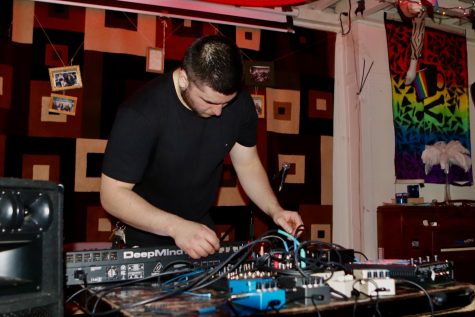Careless Comedy Can Affect Mental Health

Comedian Conan O'Brien has tweeted about his mental health, helping to normalize therapy. (Courtesy of Flickr)
October 2, 2019
Hang on for a minute...we're trying to find some more stories you might like.
Email This Story
The way we talk about mental health is constantly changing. In the past decade, there have been massive strides in improving the awareness and compassion shown toward subjects related to mental health. The language that we use to discuss such topics plays an incredibly important role. With the advent of the internet, things have changed even further. This new medium allows people to express thoughts openly, and recent trends have shown us that the future of mental health awareness is incredibly promising.
If you have used Twitter or Instagram in the past few months, chances are you have seen a meme or joke about talking to therapists. These aren’t the types of jokes that you may have seen in the past, often mocking those who choose to go to therapy. Instead, they normalize the practice. The jokes generally follow a similar structure, usually involving the individual going against the advice of the therapist, poking fun at their own behavior and thoughts.
For example, comedian Conan O’Brien tweeted, “I told my therapist about my constant need to be liked and he said we can discuss it on the jet ski I bought him.” The punchline is O’Brien’s own behavior and people-pleasing tendencies. The fact that the context is therapy is merely a setup for the joke, and the listener is not meant to question it or laugh at it. While these tweets may seem like another trivial internet trend, they represent an important change in the way we look at mental health.
It is essential to the promotion of mental well-being that we view therapy as a helpful means of looking after oneself, not much different from going to a doctor for physical health concerns. The popularity of these memes highlights a promising trend amidst troubling times: Rates of seeking help for mental health are increasing.
This change has been occurring for the last few years, especially among young adults. The American Psychological Association reported a 30% increase in student appointments at college counseling centers between 2009 and 2015, despite just a 5% increase in student enrollment.
The stigma often attached to going to therapy is decreasing, and college students are being encouraged to take advantage of the mental health resources available at their own campuses. College students represent an important group in regard to mental health due to the high rates of anxiety and depression that they report. In addition, positive change in the younger generations is usually a signal of a positive future.
Another aspect of mental health awareness is the language that we employ on a daily basis. This is generally done subconsciously, without thinking about what it may mean on a broader level. Often, when we are stressed, we may say things like “I’m so depressed,” or jokingly threaten suicide. “KMS” is even a common texting acronym that stands for “kill myself” and is prevalent throughout the Internet. Suicide is perhaps the most devastating consequence of mental illness, and it should not be used as an expression of frustration. While this is generally intended as a harmless expression of stress, the constant use of such language can contribute to a minimization of the severity of mental illness.
The way that mental health language has shifted parallels the shift toward the trend of therapy jokes online. We are now more aware of mental illnesses and the stigma often attached to them. Language is one of the most effective ways to ensure that people are not defined by their mental illnesses.
Problematic language can contribute to the idea that an individual is completely defined by their mental illness. We so often say things like “he’s a lunatic” or “she was being psychotic” without thinking about the literal meaning.
Of course, positive change does not necessitate a complete censorship of this kind of language. Instead, it requires a bit more awareness of what we are saying as opposed to what we mean. So much of our language is used without realizing where the terms or phrases originate. Take the word “hysteria” as an example: It originated with the Greek term for uterus because it was believed that the uncontrolled emotions that define the modern term were due to feminine biology.
The internet has many pros and cons, but this recent trend of mental health memes shows a positive rise in mental illness acceptance and awareness. Therapy is being seen more and more as a good thing, and not as a sign of weakness. Hopefully, as the years go on, we can continue to strive for increased mental health awareness.
Columnist volume 101, Editorial Director and Opinion Editor volume 102











“Is Following “The Road Not Taken” More Difficult, or Easier than Ever?” by Sara Gibson https://link.medium.com/hhcJmjUtt0